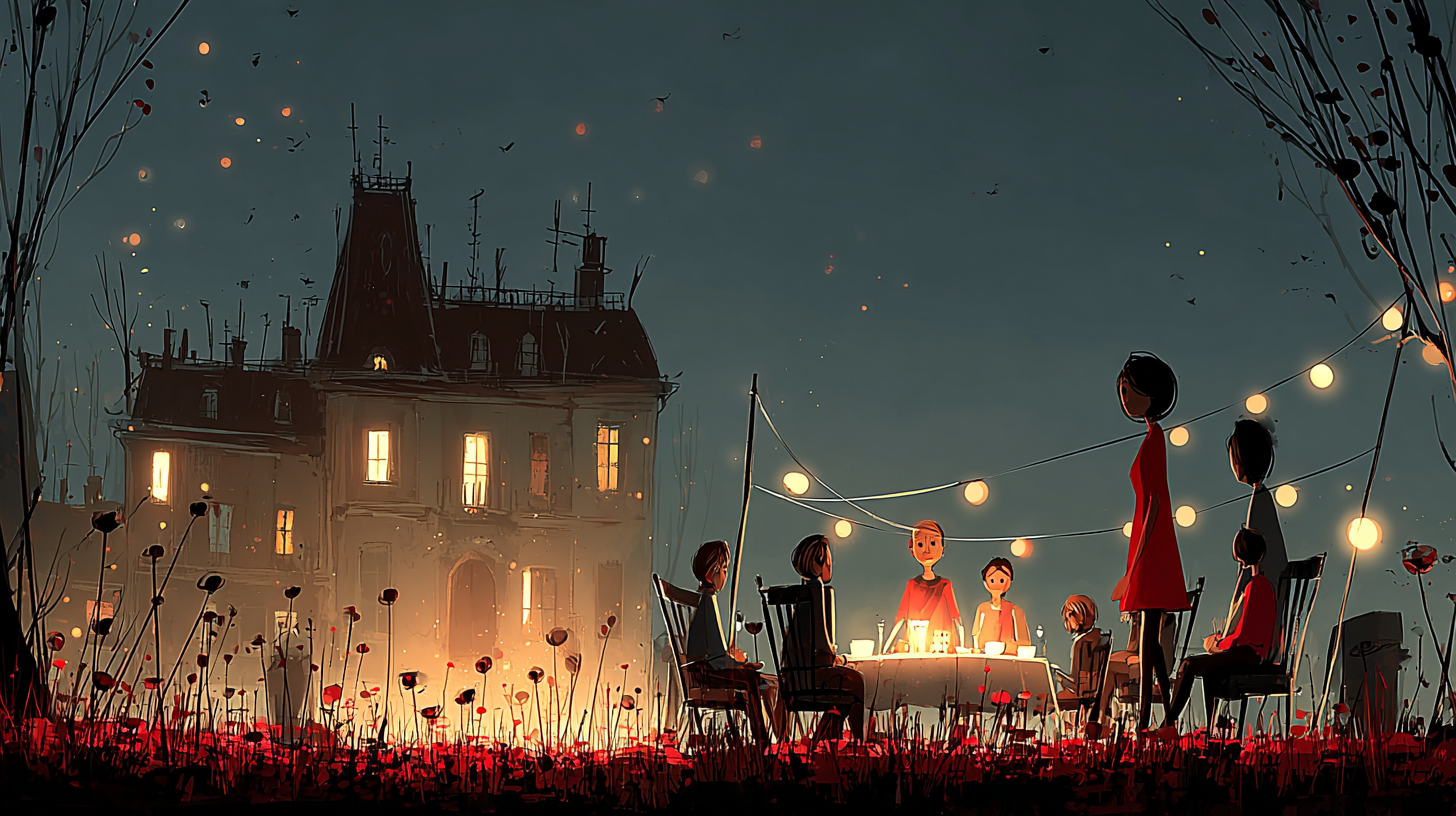“Location means the place where something is.”
「location」は「あるものがある場所や位置」を意味する言葉です。
以下は英単語 “location” に関するストーリー型学習コンテンツです。まずは大枠の意味を理解して最後の文章で確認しましょう。
主な意味(main meaning)
| 品詞 | 発音記号 (IPA) | 意味(簡潔) | 英文例文 |
|---|---|---|---|
| 名詞 (noun) | /loʊˈkeɪʃən/ | 場所、位置、所在地 | The restaurant is in a convenient location near the station. |
| 名詞 (noun) | /loʊˈkeɪʃən/ | 撮影地 | The movie was filmed on location in Paris. |
語源(etymology)
「location」はラテン語 locare(置く、位置づける)から来ています。核のイメージは「あるものが置かれている位置」です。
類義語(synonyms)
| 類義語 | 意味 | 英文例文 |
|---|---|---|
| place | 場所 | This is a quiet place to study. |
| site | 敷地、場所 | The construction site is near the river. |
| position | 位置 | His position in the company is very important. |
| spot | 特定の場所 | We found a nice spot for a picnic. |
反義語(antonyms)
| 反義語 | 意味 | 英文例文 |
|---|---|---|
| nowhere | どこにもない場所 | The village seemed to be in the middle of nowhere. |
| absence | 不在、存在しないこと | The absence of a clear location made the map confusing. |
コロケーション(collocations)
| コロケーション | 英文例文 |
|---|---|
| remote location | The cabin is in a remote location in the mountains. |
| exact location | Can you tell me the exact location of the meeting? |
| filming location | Kyoto is a popular filming location for historical movies. |
| convenient location | The hotel is in a convenient location near the airport. |
2項表現(binomials)
| 2項表現 | 英文例文 |
|---|---|
| here and there | We saw small shops here and there in the city. |
| safe and sound | We arrived at the new location safe and sound. |
英語ストーリー(english story)
One summer, Mika, a young woman working for a travel company, was asked to organize a special tour for a group of international visitors. The company wanted to choose the perfect location for the tour. It had to be a place that was beautiful, easy to reach, and full of culture.
At first, Mika thought about Kyoto. It was famous as a filming location for historical movies. There were temples, gardens, and traditional houses. “This is a wonderful place,” she said to herself. “But maybe too common. Everyone knows it.”
Next, she looked at a mountain village. It was a remote location, far from the city. The village had a small river, old wooden bridges, and quiet streets. It seemed like the ideal site for a peaceful trip. But then she worried. “It might be too difficult for visitors to travel here. The buses do not come often, and there are only a few small shops here and there.”
Her manager reminded her, “The tour must be easy for our guests. They want comfort.” That made Mika think about hotels. She checked which ones had a convenient location near the station. Some hotels were modern, while others were more traditional. She wrote down each hotel’s exact location so that guests would not get lost.
Still, she felt something was missing. “We need a special experience,” she thought. She visited different spots in the city, such as local markets, tea houses, and a small theater. She also asked herself about her own position in the company. She wanted to show her manager that she could plan a tour better than anyone else.
One day, while walking, she discovered an old garden behind a temple. It was quiet, but full of charm. “This is the perfect spot!” she whispered. “It is not far, but it feels like another world.”
However, when she asked the temple staff about using the garden, they said there was an absence of facilities for large groups. No bathrooms, no chairs, no lights at night. It seemed impossible. Mika felt discouraged. “If I cannot find the right location, the tour will lead us nowhere,” she thought.
But Mika did not give up. She returned to the garden with her friend Ken, who worked in event planning. Ken smiled and said, “We can rent portable chairs and lights. We can set up everything. Guests will enjoy this unique site.”
Finally, the day of the tour arrived. The visitors came from different countries. They stayed at a hotel in a convenient location near the station. During the day, they visited temples, markets, and theaters. At night, Mika led them to the hidden garden. Everyone was surprised and delighted. “This is the most beautiful location we have ever seen!” one guest said.
The visitors ate dinner under the stars, listened to traditional music, and talked with local people. At the end of the evening, they returned to the hotel safe and sound. Mika felt proud. She had found the perfect balance between comfort and adventure.
Her manager praised her. “You found not only a good location, but also the heart of the city. That is true travel.”
From then on, Mika believed that the right location was not just a physical place. It was the connection between people, culture, and experience.
和訳
ある夏、旅行会社で働く若い女性の美香は、外国人観光客のために特別なツアーを企画するように頼まれました。会社はツアーに最適な location(場所) を選びたいと考えていました。それは美しく、行きやすく、文化にあふれている必要がありました。
最初に美香が考えたのは京都でした。京都は歴史映画の filming location(撮影地) として有名でした。寺や庭園、伝統的な家がありました。「ここは素晴らしい place(場所) だわ」と彼女は思いました。「でも、ありふれているかもしれない。誰でも知っているから。」
次に彼女は山の村を見ました。それは都会から遠い remote location(人里離れた場所) でした。村には小さな川、古い木の橋、静かな通りがありました。まるで理想的なツアーの site(場所、敷地) のようでした。しかし彼女は心配しました。「ここは来るのが難しいかもしれない。バスはあまり来ないし、小さな店が here and there(あちこち) にあるだけ。」
上司は「ツアーはお客様にとって便利でなければならないよ。快適さを求めているから」と言いました。その言葉で美香はホテルのことを考えました。駅に近い convenient location(便利な場所) にあるホテルを調べました。モダンなホテルもあれば、伝統的なホテルもありました。彼女は迷わないように、それぞれのホテルの exact location(正確な場所) を書き留めました。
それでも何かが足りない気がしました。「特別な体験が必要だわ」と思い、彼女は街の市場や茶屋、小さな劇場などさまざまな spots(場所、スポット) を訪れました。同時に、自分の会社での position(立場) についても考えました。誰よりも良いツアーを企画できることを示したかったのです。
ある日、歩いていると寺の裏に古い庭園を見つけました。静かでありながら魅力に満ちていました。「これが完璧な spot(場所) だわ!」と彼女はささやきました。「遠くないけど、まるで別世界のよう。」
しかし寺のスタッフに庭園の利用を尋ねると、大人数用の設備が absence(欠如) していると言われました。トイレも、椅子も、夜の照明もありません。実現は不可能に思えました。美香は落ち込みました。「もし適切な location(場所) が見つからなければ、ツアーは nowhere(どこにもたどり着かない) だわ。」
でも美香はあきらめませんでした。イベント企画をしている友人の健を連れて再び庭園を訪れました。健は笑って言いました。「椅子や照明は借りればいい。すべて準備できるよ。お客様はきっとこの特別な site(場所) を楽しむさ。」
ついにツアーの日が来ました。観光客たちはさまざまな国からやってきました。彼らは駅の近くにある convenient location(便利な場所) のホテルに泊まりました。昼間は寺や市場、劇場を訪れました。夜には美香が隠された庭園へ案内しました。皆が驚き、喜びました。「こんなに美しい location(場所) は見たことがない!」とある客が言いました。
観光客たちは星空の下で夕食をとり、伝統音楽を聴き、地元の人々と交流しました。夜が終わると、彼らはホテルに safe and sound(無事に) 戻りました。美香は誇らしく思いました。彼女は快適さと冒険の両方を見つけることができたのです。
上司は彼女を称賛しました。「君は良い location(場所) を見つけただけじゃない。この街の心を見つけたんだ。それこそが本当の旅だよ。」
それ以来、美香は正しい location(場所) とは単なる物理的な place(場所) ではなく、人々、文化、体験をつなぐものだと信じるようになりました。
Q&A
Q: 「location」と「place」の違いは?
A: 「location」は地図や計画で指す「特定の場所」で、少しフォーマルです。「place」はもっと一般的で、日常会話で「場所」と言うときに一番よく使います。
Q: 「location」と「site」の違いは?
A: 「site」は「敷地」や「建設予定地」など、活動や建物がある(または予定されている)場所を指します。「location」はもっと広く、住所や位置を指します。
Q: 「location」と「position」の違いは?
A: 「position」は「位置」や「立場」を意味します。物理的な座標や体の向きに使うことが多いです。「location」は「どこにあるか」という地理的な場所に強調があります。
Q: 「location」と「spot」の違いは?
A: 「spot」は「小さな特定の場所」や「お気に入りの場所」を表します。口語的でカジュアルな響きです。「location」はより大きく、フォーマルに「場所」を示します。
Q: 「remote location」と「convenient location」の違いは?
A: 「remote location」は「人里離れた場所」で、行くのが難しいイメージです。「convenient location」は「便利な場所」で、交通や生活に適していることを強調します。
Q: 「exact location」と「location」の違いは?
A: 「exact location」は「正確な場所」を意味し、地図上のピンポイントや詳細な住所を指します。「location」だけだと、もう少し大まかな意味になります。
Q: 「filming location」と「location」の違いは?
A: 「filming location」は映画やドラマの「撮影地」を特定して言うときの表現です。「location」単体はただの「場所」なので、映画文脈では「ロケ地」と補う必要があります。



コメント